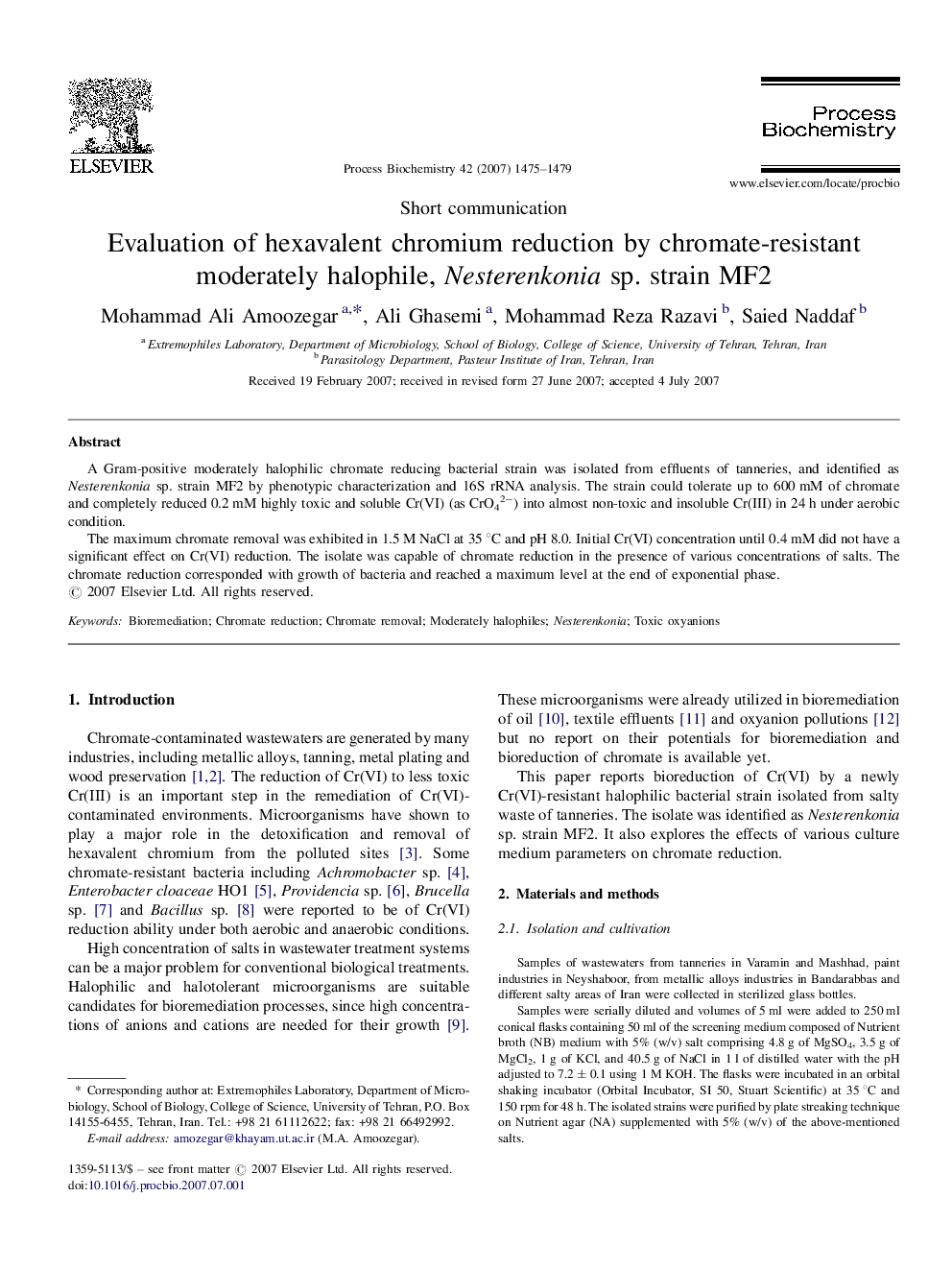| Article ID | Journal | Published Year | Pages | File Type |
|---|---|---|---|---|
| 35812 | Process Biochemistry | 2007 | 5 Pages |
A Gram-positive moderately halophilic chromate reducing bacterial strain was isolated from effluents of tanneries, and identified as Nesterenkonia sp. strain MF2 by phenotypic characterization and 16S rRNA analysis. The strain could tolerate up to 600 mM of chromate and completely reduced 0.2 mM highly toxic and soluble Cr(VI) (as CrO42−) into almost non-toxic and insoluble Cr(III) in 24 h under aerobic condition.The maximum chromate removal was exhibited in 1.5 M NaCl at 35 °C and pH 8.0. Initial Cr(VI) concentration until 0.4 mM did not have a significant effect on Cr(VI) reduction. The isolate was capable of chromate reduction in the presence of various concentrations of salts. The chromate reduction corresponded with growth of bacteria and reached a maximum level at the end of exponential phase.
